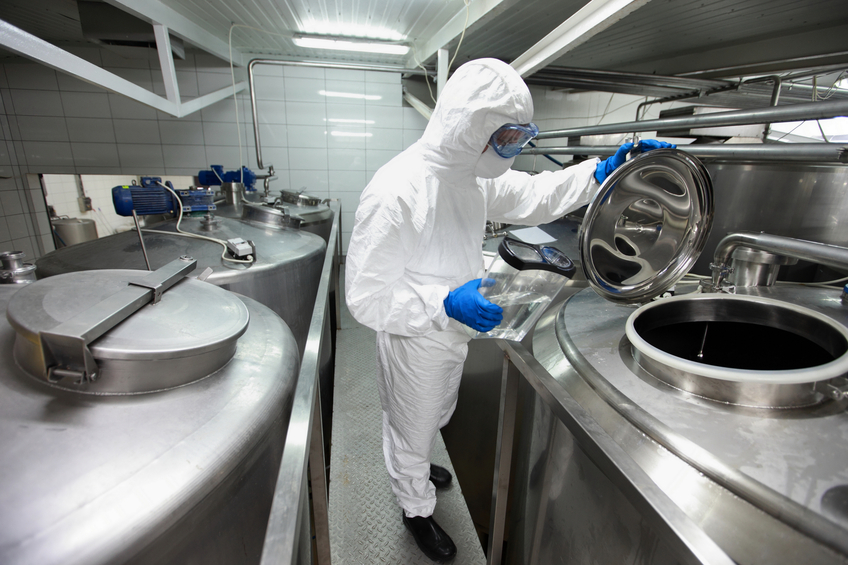In July 2015, the city water supply in Flint, Michigan, was revealed to be disastrously unsafe. In fact, the water quality in Flint had been poor for years, but it wasn’t until an independent study conducted by a professor from Virginia Tech University was released in September 2015, that steps were taken to reduce residents’ exposure to dangerous levels of lead. In fact, in an attempt to reassure Flint residents that their water was safe, Flint Mayor Dayne Walling drank a cup of tap water during a televised news conference on July 9.

|
The rest of Michigan, and many communities outside Michigan, began shipping bottled water to Flint.
Consumers take adulterated food and beverages very seriously. That’s why employers in the food production and processing industries must care when it comes to possible contaminants in food—a problem with food quality can result in lost sales, lost jobs, and an increase in regulatory oversight.
Here are some problems that OSHA has noted recently in food production and processing that could have an impact not only on workers’ health but also on a company’s reputation for producing food and beverages that are safe to eat.
Housekeeping Hazards
One of the most common causes of adulterated food is a lack of sanitation in the workplace. That’s what happened after a roof leak and two sprinkler system failures at a ConAgra peanut butter manufacturing plant in Sylvester, Georgia, in 2007. The moisture contamination promoted the growth of salmonella, a common contaminant in peanuts. More than 400 people were sickened, and the plant was shut down for renovation.
But employers still neglect sanitation in food preparation and processing. In July, 2016, the Pilgrim’s Pride chicken processing plant in Live Oak, Florida, was cited for not keeping floors, work spaces, and passageways well-maintained in a way that would facilitate cleaning.
Cleanliness is often said to be next to godliness—but food production and processing facilities would do well to remember that it is also next to consumer confidence.
Careless Hazardous Chemical Handling
In 2007, toothpaste imported from China was found to be contaminated with toxic levels of diethylene glycol—a chemical used in antifreeze. The substance, which is illegal for this use in the United States, was included deliberately in the imported toothpaste as a thickener and sweetener.
Could it happen here? Yes; it is most likely to occur as the result of using contaminated ingredients imported from elsewhere—as when wheat from China that was contaminated with toxic melamine was used in pet foods manufactured in other places, and then sold in the United States.
It could also happen unintentionally, as a result of careless handling of either chemicals or products. At the Pilgrim’s Pride facility in Live Oak, for example, the facility was cited for mislabeling one pH-adjusting chemical as a different pH-adjusting chemical. In addition, workers were allegedly not receiving hazardous chemical training.
Sanitizing products are another chemical hazard that can contaminate food products, so careful handling of sanitizing chemicals is extremely important in a food-processing setting. But workers at Bluebonnet Foods in San Antonio, Texas, were allegedly exposed to carelessly handled sanitizing chemicals, according to citations issued in July 2016.
If you could have an accident in which employees are exposed to chemical hazards, you could also be at risk of an incident that contaminates your product. Whenever food is involved, careful chemical handling is called for.
Your commitment to worker health and safety goes hand in hand with your commitment to product quality and consumer safety. Don’t jeopardize the one by being careless about the other.
Need more information on how safety can have a positive impact on your business? Check out the resources at Safety.BLR.com®.
